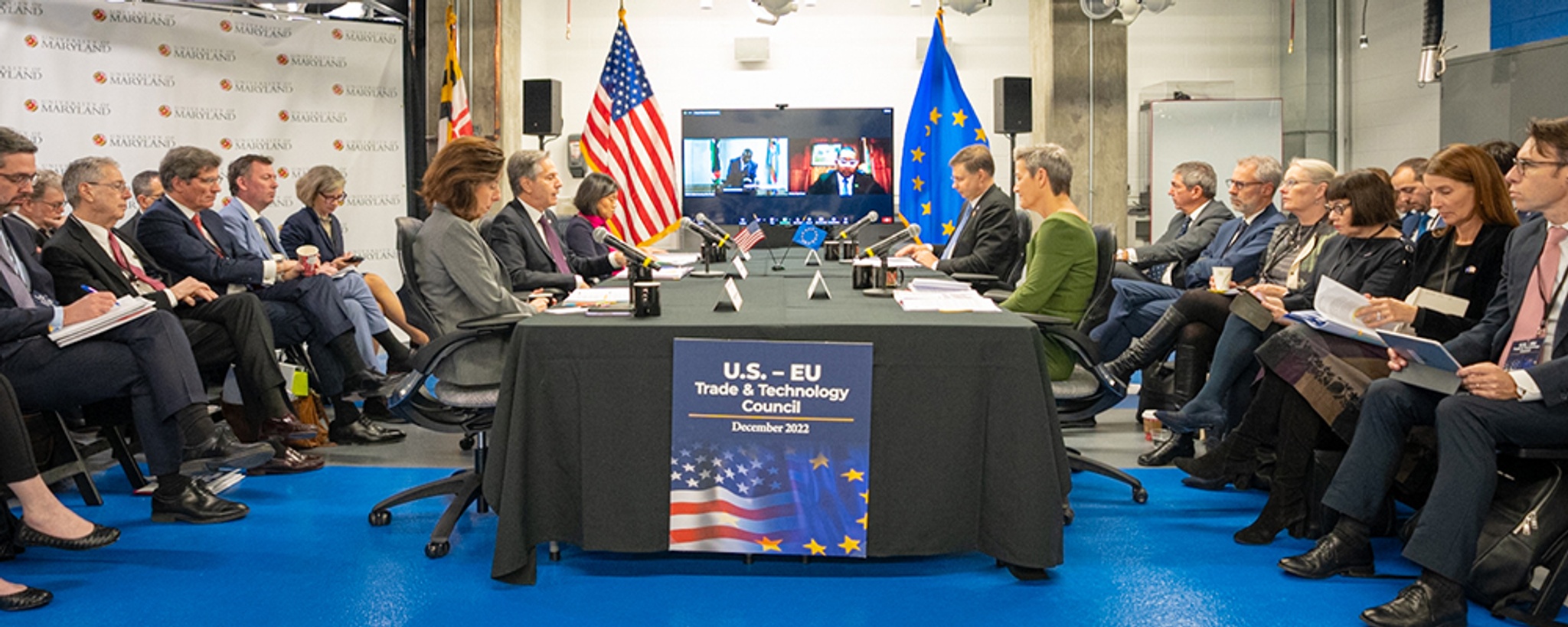Europe
Navigate forward to interact with the calendar and select a date. Press the question mark key to get the keyboard shortcuts for changing dates.
Navigate backward to interact with the calendar and select a date. Press the question mark key to get the keyboard shortcuts for changing dates.
Featured
The Digital Markets Act: A Triumph of Regulation Over Innovation

The Digital Markets Act presents three fundamental challenges as it nears adoption: First, it will increase regulatory fragmentation. Second, its disproportionate blanket obligations and prohibitions will be economically detrimental and legally controversial. Third, it will be difficult to implement, as some of its provisions clash with other European regulations.
More Publications and Events
July 14, 2025|Blogs
Europe’s Innovation Lethargy Should Be a Lesson of What Not to Do, Even for a Leading US
Over the past decade, Europe has ceded leadership in innovation to the U.S. and China. Now, the U.S. must learn from the EU’s missteps to ensure that it maintains technological preeminence in the coming decades.
July 10, 2025|Blogs
Brussels Risks Prioritising Symbolism Over Substance in Cloud Procurement
In its push for digital sovereignty, the European Commission is reportedly planning to replace Microsoft Azure with the French cloud provider OVHcloud or another European alternative. But this move, while politically symbolic, would be costly. Far from enhancing security, this migration would sacrifice sound procurement and EU legal obligations in service of a hollow vision of digital nationalism.
June 30, 2025|Blogs
Six Ways the DMA Is Backfiring on Europe by Harming Users, Innovation, and Allies
The EU’s Digital Markets Act was sold as a blueprint for fairness and innovation. But instead of fostering competition, the DMA risks turning Europe into a regulatory island—more isolated, less competitive, and increasingly irrelevant on the world stage.
June 20, 2025|Blogs
German State Prioritizes Politics Over Practical Technology Solutions
Schleswig-Holstein’s move to drop Microsoft for open-source tools reflects costly digital protectionism driven by politics, not practicality. EU governments should focus on evidence-based tech procurement over nationalist agendas.
June 17, 2025|Blogs
No, Social Media Is Not Porn
France may label certain social media platforms as porn sites to enforce age checks, a move that misrepresents platform use and raises privacy, free speech, and regulatory concerns.
June 6, 2025|Testimonies & Filings
Comments to the European Commission Regarding Future Cloud and AI Policies in the EU
It is critical that, in tackling both these issues, the EU avoids engaging in digital protectionism, which would harm European competitiveness further.
June 6, 2025|Testimonies & Filings
Comments to the European Commission Regarding Its “Apply AI Strategy”
The Center welcomes the European Commission’s ambition to accelerate the uptake of AI across the economy and public sector as part of its broader AI continent action plan.
June 2, 2025|Blogs
Germany’s New Digital Ministry Will Make or Break the Government’s AI Ambitions
Germany’s new coalition government has created a central digital ministry to finally accelerate its slow-moving AI agenda, aiming to modernize public services and support AI innovation. But success hinges on whether it prioritizes practical reform over symbolic sovereignty, especially amid EU regulations and global competition.
May 28, 2025|Presentations
The Digital Markets Act as Legal Design: Sovereignty and Strategy
Lilla Nóra Kiss speaks on the Digital Markets Act at the TalTech Legal Lab Annual Research Forum.
May 21, 2025|Presentations
The Digital Markets Act Explained: Is the EU Rewriting the Rules For Big Tech?
Lilla Nóra Kiss speaks on the legal and economic ramifications of the Digital Markets Act at the Università del Salento.


